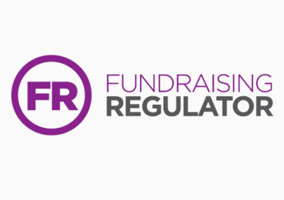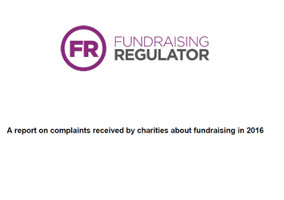The 50 largest charities by fundraising income were collectively responsible for over 21,000 fundraising complaints last year, analysis of annual accounts for the 2017/18 financial year has shown.
New reporting requirements were added into the Charities Act 2016 on 1 November 2016, requiring all charities to report the number of fundraising complaints they had received from members of the public for that financial year.
The changes apply to charities reporting from 2018, affecting those organisations with either a December 2017 or March 2018 year end.
Civil Society News has since analysed the accounts data of the 50 largest charities in terms of annual fundraising income.
This analysis found that of the 50 largest fundraising charities, those that fell within the deadline of the new reporting requirements or voluntarily published their complaints figures, were collectively responsible for 21,072 fundraising-related complaints.
Macmillan most complained about charity
The most complained about fundraising charity in the last financial year was Macmillan Cancer Support, whose latest set of accounts for the year ending 31 December 2017 showed it received 6,600 complaints from members of the public, up from more than 4,000 the previous year.
A spokesman for Macmillan told Civil Society News: “At Macmillan we take complaints very seriously. We rely entirely on generous donations from members of the public and work hard to maintain their trust. We actively encourage people to tell us about their experience of Macmillan, so we can continue to be the most trusted charity in the UK.”
The spokesman said that the increase in complaints was due to Macmillan updating its definition to “any expression of dissatisfaction”, meaning that more customer feedback has been recorded as a complaint, particularly in the area of social media.
“In addition, we had an issue with one of our suppliers around a particular area of donations which resulted in increased complaints in 2017,” the spokesperson said. “We addressed this as soon as the issue was highlighted and no longer work with this supplier.”
The second most complained about charity was Cancer Research UK, which received 1,821 complaints directly related to its fundraising.
Marie Curie with 1,428 and the British Heart Foundation with 1,025, were the only two other charities to receive more than 1,000 fundraising complaints in the 2017/18 financial year.
Amanda Bringans, director of fundraising at the British Heart Foundation, said: “We’re committed to ensuring the millions of people who are in touch with the British Heart Foundation every year have an excellent experience – whether it’s at our fundraising events, it’s our 20,000 volunteers, or those who support us in any other way, such as with a regular donation.
“While the number of complaints we receive in comparison to the volume of people we interact with is very small, we take all complaints seriously and will do all we can to resolve a supporter’s concerns.
“Our supporters are at the heart of everything we do, and we’re completely reliant on their generosity to fund our life saving research in to new treatments and cures for heart and circulatory diseases. It’s only by listening to these supporters that we can constantly improve what we do.”
Ten charities outside accounting period
Ten of the top 50 charities were not required to publish this information as their most recent set of accounts were published before the complaints requirements came into effect.
However four of these charities – The National Trust, World Vision, Plan International UK and the Royal British Legion – either provided an up-to-date complaints figure upon request, or published the information of their own accord.
Collectively these four charities were responsible for 809 complaints.
Six of the top 50 charities which have not yet filed accounts – Salvation Army, the Royal Opera House, Age UK, Comic Relief, BBC Children in Need and Help for Heroes – did not release the figures upon request.
Both the Tate and British Museum reported no fundraising-related complaints for the last financial year. However, as both are non-departmental public bodies funded and regulated by the Department for Digital, Media, Culture and Sport rather than the Charity Commission, neither was required to report complaints.
Regulator to focus on top 50 in next complaints report
A spokesperson for the Fundraising Regulator told Civil Society News that it would be publishing its own complaints report, focused on the 50 biggest fundraising charities, “before the end of the year”.
The spokesperson said: “Under the Charities Act 2016, charities are required to report on the number of complaints received about their fundraising activities. Noncompliance with this requirement may be a matter of concern to auditors and independent examiners.
“The Fundraising Regulator will publish its latest complaints report, focusing on the 50 biggest fundraising charities, before the end of the year.”
Last year, the regulator published its first complaints report since taking on the role of fundraising regulation from the Fundraising Standards Board. Its report, gathered from complaints data submitted by 893 charities of different sizes which contributed to its levy, found that those organisations had received 42,782 complaints from the public.
Daniel Fluskey, head of policy and external affairs at the Institute of Fundraising, told Civil Society News that complaints themselves are not necessarily a problem for charities so long as they are “handled properly” and are treated as “important pieces of information from the public".
"Charities should welcome complaints as useful feedback from the public to improve how they work and justify their fundraising campaigns moving forwards," he said.
Fluskey also said that the IoF would be launching a new "effective complaints handling" course in December, to be run in conjunction with the Fundraising Regulator. He said complaints handling is an area “where the sector can still improve”.
A Charity Commission spokesman said: “The public place great faith in charities when they donate money so it is essential that fundraising is done responsibly and in a way that protects donors. Charities must treat the generous public with the respect they deserve by displaying the highest standards of conduct and behaviour when raising funds.
“We welcome the light that is being shone on charities’ fundraising practices following the introduction of the Charities (Protection and Social Investment) Act. It is vital that this is matched by robust action from charities themselves and close scrutiny from the Fundraising Regulator.”
|
Related Articles










